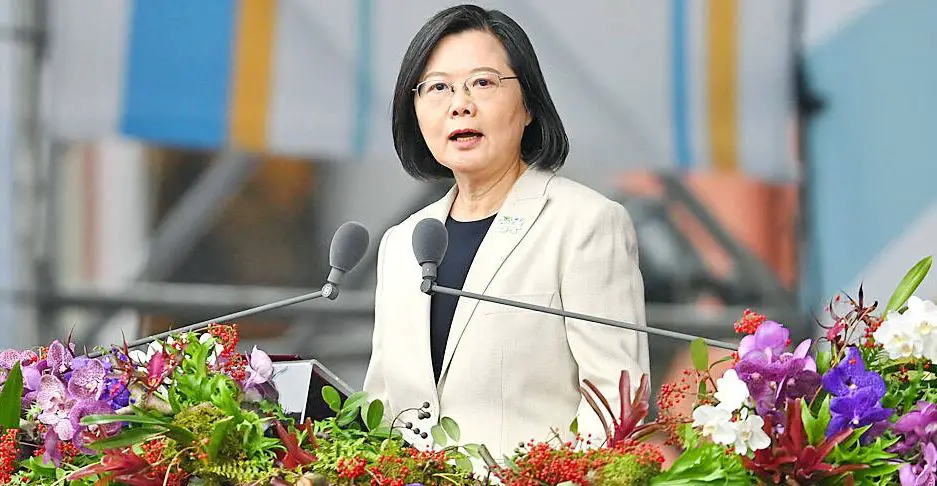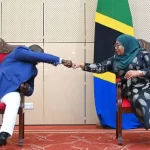President Tsai Ing-wen of Taiwan has said her government is willing to seek a mutual arrangement with China to uphold peace provided that negotiations are conducted with “rationality, equality and mutuality.”
“I want to make it clear to Beijing authorities that armed confrontation is absolutely not an option for our two sides,” Tsai said.
She made the remarks during the Double Ten National Day address to the nation.
“Only by respecting the commitment of Taiwanese to their sovereignty, democracy and freedom can there be a foundation for resuming constructive interactions across the Taiwan Strait,” she added.
“We look forward to the gradual resumption of healthy and orderly cross-strait people-to-people exchanges after the loosening of border restrictions on both sides, thereby easing tensions in the Taiwan Strait,” she said.
Taiwan is on Thursday to reopen its borders, following severe restrictions for the past more than two years due to the COVID-19 pandemic. China continues to implement a “zero COVID-19” policy ahead of the 20th National Congress of the Chinese Communist Party, which begins on Sunday.
Tsai said China has threatened peace and stability in the Strait and the region through military intimidation, diplomatic pressure, trade obstructions and attempts to erase the sovereignty of Taiwan.
“During the past 73 years, Taiwanese have lived and grown together on this land, and have formed their own strong sense of identity and belonging. The broadest consensus among Taiwanese and various political parties is that we must defend our national sovereignty, and our free and democratic way of life. On this point, we have no room for compromise,” she said.
“Beijing authorities should not make any misjudgement on account of Taiwan’s vigorous democratic system,” Tsai said.
“They must not think there is room for compromise in Taiwanese’s commitment to democracy and freedom, or try to divide Taiwanese society by exploiting the fierce competition between our political parties,” she said.
“Such beliefs and actions would not benefit cross-strait relations, and will only push the two sides further from each other,” she added.
Although Taiwan’s COVID-19 pandemic prevention efforts have earned global recognition and helped the nation achieve 6.75 percent economic growth last year, the strongest in the past few years, Tsai noted greater challenges in the post-pandemic era: high inflation in Europe and the US, a looming global recession, the restructuring of global supply chains, climate change, Russia’s invasion of Ukraine, and China’s increased military activities in the South and East China seas and the Taiwan Strait.








